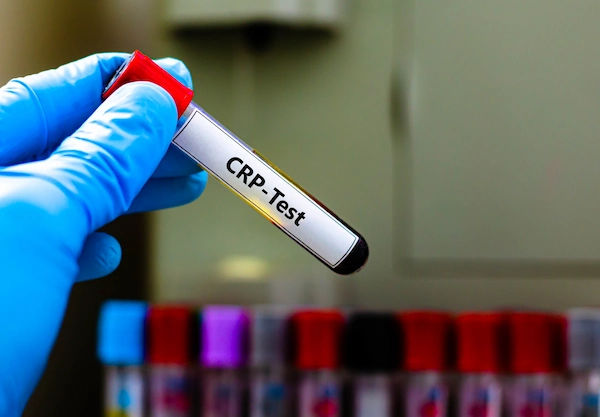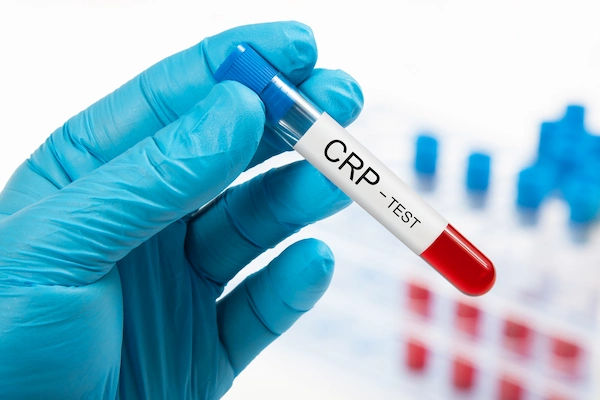Best Tests to Identify the Cause of Frequent Headaches
Discover the best diagnostic tests to identify the root cause of frequent headaches, from sinus issues to vitamin deficiencies. Learn when to get tested and how Apollo 24|7’s comprehensive packages can help.

Written by Dr. Rohinipriyanka Pondugula
Reviewed by Dr. Siri Nallapu MBBS
Last updated on 9th Sep, 2025

Chronic headaches can seriously interfere with your daily life, including its impacts on concentration and vitality and general health. Though occasional headaches can be caused by tension or tiredness, headaches occurring on multiple occasions or being very acute may be an indication of a concealed medical disorder requiring immediate review. Finding its cause is paramount for appropriate cure and prevention, mostly for adults suffering from migraines, sinus issues, or chronic conditions. A step-by-step headache test process can help and guide you and your doctor find its root and offer comfort and confidence.
In this guide, we’ll explain the best diagnostic tests used to uncover the cause of frequent headaches. We'll also cover when to consider testing, what each type of test checks for, and how comprehensive packages, like those from Apollo 24|7, can help provide accurate, timely results from the comfort of your home.
Why Are Headaches So Common?
Headaches affect people of all ages and lifestyles. They can be triggered by various factors, such as:
- Stress and anxiety
- Lack of sleep
- Dehydration
- Eye strain
- Hormonal changes
- High or low blood pressure
- Sinus congestion
- Nutritional deficiencies
- Certain medications or withdrawal
- Underlying medical conditions (e.g. anaemia, infections)
Because headaches have such a wide range of possible causes, identifying the correct one requires a step-by-step evaluation that may include a physical exam, symptom diary, and specific tests tailored to your symptoms.
When Should You Consider a Headache Test?
It’s time to consider testing if you:
- Have headaches more than twice a week
- Wake up with headaches
- Experience headaches that worsen over time
- Feel nauseous or vomit during a headache
- Notice changes in vision, speech, or balance
- Get headaches after coughing or physical exertion
- Have a history of sinus issues or high blood pressure
- Don’t respond to over-the-counter pain medications
Testing is especially recommended if your headache pattern has changed or if the pain is interfering with your normal activities.
Types of Tests to Identify the Cause of Headaches
Depending on your symptoms and medical history, your healthcare provider may recommend one or more of the following tests. These are the most common and reliable diagnostic tools for uncovering what’s causing your headaches. Some of the most common tests suggested to identify the cause of headaches are:
1. Blood Test for Headache
Blood tests are often the first step in headache evaluation. A basic blood test for headache can detect conditions that may be contributing to head pain, such as:
A. Complete Blood Count (CBC)
- A CBC checks for signs of infection, inflammation, or anaemia. Anaemia, especially iron-deficiency anaemia, is a common cause of fatigue and headache, particularly in women.
B. Erythrocyte Sedimentation Rate (ESR) and C-Reactive Protein (CRP)
- These tests look for inflammation in the body and can help detect infections, autoimmune disorders, or temporal arteritis, an inflammatory condition that causes severe headache in older adults.
C. Blood Glucose Test
- Low or fluctuating blood sugar levels may trigger headaches in some people, especially those with diabetes or prediabetes.
D. Thyroid Profile Test (TFT)
- Thyroid imbalance (hypothyroidism or hyperthyroidism) can contribute to persistent headaches, mood swings, and fatigue.
Schedule a Thyroid Profile Test
E. Vitamin B12 and Vitamin D Test
- Vitamin B12 and D deficiencies are linked to neurological symptoms, including chronic headaches, brain fog, and fatigue. There are packages like Apollo Vitamin Check which includes Vitamin D and Vitamin B12 available on Apollo 24|7 which are economically better than individual tests.
2. Blood Pressure Monitoring
High blood pressure (hypertension) is a common but often overlooked cause of morning or occipital headaches (pain at the back of the head). Conversely, low blood pressure can also lead to headaches, particularly when standing or moving suddenly. If you experience dizziness, visual disturbances, or a pounding sensation in your head, measuring your blood pressure is crucial. Your doctor may recommend home monitoring or a 24-hour ambulatory BP test.
Tip: Keep a log of your readings and share it with your doctor during follow-up appointments.
3. Sinus Imaging (X-Ray or CT Scan)
If your headaches are concentrated around the forehead, cheeks, or eyes and are accompanied by symptoms like nasal congestion, facial pressure, or post-nasal drip, sinusitis may be the culprit. In such cases, imaging tests help confirm the diagnosis.
A. X-Ray of the Paranasal Sinuses
This test checks for sinus blockages or fluid buildup, commonly seen in sinus infections.
B. CT Scan of the Sinuses
More detailed than an X-ray, a CT scan can reveal chronic sinusitis, nasal polyps, or structural abnormalities such as a deviated septum.
4. MRI or CT Scan of the Brain
Neuroimaging is essential if your doctor suspects a neurological cause. This includes migraines with aura, unexplained headaches, or symptoms such as numbness, weakness, seizures, or visual disturbances.
A. CT Scan of the Brain
Useful in emergencies, CT scans detect bleeding, swelling, tumours, or structural issues.
B. MRI Brain
MRI offers clearer images of brain tissues and is often used for detecting multiple sclerosis, brain tumours, vascular malformations, or chronic migraine patterns.
These are not routine tests but are advised when red flags are present.
5. Eye Test
Eye strain from uncorrected vision problems or prolonged screen time can cause dull, throbbing headaches. An eye test can detect:
- Refractive errors (myopia, hyperopia, astigmatism)
- Dry eyes
- Glaucoma
- Eye muscle imbalances
If your headaches start behind the eyes or after long reading sessions, an eye exam is a sensible step.
6. Allergy Testing
Some people with sinus headaches may actually be experiencing allergic rhinitis triggered by dust mites, pollen, or pet dander. Identifying allergens through a blood or skin prick test can help avoid unnecessary antibiotics and target the real cause. Allergy-induced headaches often coincide with sneezing, itching, and nasal congestion.
7. Hormonal Profile Tests
Hormonal fluctuations, especially in women, can trigger migraines around menstruation, pregnancy, or menopause. Hormonal tests such as:
These tests can provide insights into cyclical headache patterns and guide treatment through diet, lifestyle, or medication.
Get Your Health Assessed Here
8. Comprehensive Headache Panels (Combo Tests)
If you’re unsure of the exact cause and want a more comprehensive screening, opt for a diagnostic combo that includes:
- CBC
- Blood sugar levels
- Thyroid function
- Vitamin B12 & D
- Kidney and liver function
- CRP and ESR
These panels offer a more holistic picture of your overall health and can detect multiple headache triggers in one go.
Book an Apollo Fever Panel Test
How to Choose the Right Headache Test Package
When selecting a test, consider:
- Symptoms: Identifying the symptoms to know if they are sinus-related, throbbing migraines, or tension-type headaches.
- Frequency: Knowing how often episodes of headache occur.
- Triggers: Identifying the triggers like food, light, noise, or hormones.
- Additional Symptoms: Knowing additional symptoms like dizziness, nausea, vision changes, fatigue
Discussing your headache history with a doctor will help determine whether a single test (like a CBC) is enough or if a broader diagnostic approach is required.
Benefits of Diagnostic Testing with Apollo 24|7
Apollo 24|7 offers trusted lab testing across India with the following benefits:
- Home Sample Collection: Book your test online and get samples collected at home.
- NABL-Accredited Labs: High-quality testing with reliable, consistent results.
- Quick Turnaround Time: Most reports are available within 24–48 hours.
- Digital Reports: Easily shareable with your doctor.
- Affordable Packages: Combo test options at discounted prices.
What to Do After Getting Your Test Results?
Once your results are in, don’t try to interpret them on your own. Schedule a consultation with your general physician, neurologist, ENT specialist, or a headache specialist depending on the findings. Treatment could include:
- Medication: For migraines, sinus infections, anaemia, etc.
- Dietary changes: For deficiencies or high blood sugar.
- Allergy management: Avoidance strategies or antihistamines.
- Stress reduction: Yoga, meditation, regular sleep.
Conclusion
Frequent headaches are more than just a nuisance, they could be a sign of an underlying issue such as sinusitis, vitamin deficiency, anaemia, hormonal imbalance, or high blood pressure. With the right headache test, you can move from guessing to knowing, and from managing symptoms to treating the cause. Don’t wait for the next headache to strike. Take the first step towards relief and better health. Book your headache-related tests today on Apollo 24|7 for quick, reliable, and home-convenient diagnostics tailored to your needs.






.webp)

